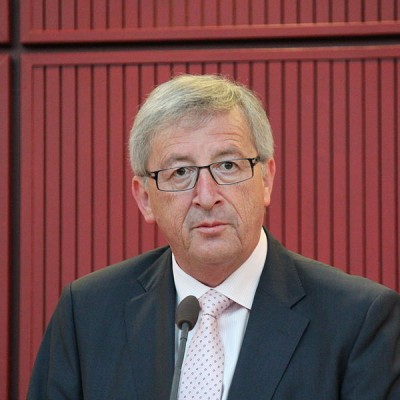Billions of euros are flying around Europe also this year, and an attentive observer should not miss from whom and to whom they are wandering. Especially, when the bets of Slovak taxpayers are also in play.
This time we start in medias res. The International Monetary Fund released another tranche of 3,25 billion euros for Greece after fulfilment of the conditions. But Greeks do not celebrate much, since last year the unemployment has crossed over 25% and the expectations are not very optimistic even for 2013. New loans further increase Greek debt and also the ongoing economic slump that Greece is likely to record for a sixth consecutive year does not help in the fighting with an astronomical debt.
But resourceful Greeks have found a way how to pay off their debt almost immediately. If only Germans would pay them 160 billion euro as a compensation for the occupation during the Second World War. Berlin paid Greeks the reparations agreed on in 1946 back in the 60s of the last century, but it is probably not the point. Do demons of the past revive in Europe again?

Plik Jean-Claude Juncker 2012-06-27.JPG znajduje się w Wikimedia Commons – repozytorium wolnych zaso
Spanish banks got their promised 35 billion of 100 billion aid already in December. But their total appetite may be bigger. Much bigger. The negative development of the Spanish economy also influenced the amount of non-performing loans, which jumped from 8 % to 11,5 % last year.
The average Slovak usually has other worries than to monitor the health of Spanish banks. But he may sit up when he realizes that we also participate in the aid provided by ESM. Nevertheless, it is cultivating now the European cohesion: a billion here, a billion there.
Aid agreement in Cyprus is negotiated with a bit of difficulty. Although Cyprus needs only a small amount of 17 billion euros for bank rescue, the three international creditors, including the European Commission, the European Central Bank (ECB), and the International Monetary Fund (IMF), are trying to force it to fulfil the conditions similarly to the other countries which have already received the aid. And not just in the form of deficit reduction, but mainly by changing the settings for which Cyprus is considered a tax haven. This is what the European countries complain about the most.
However, it does not prevent politicians from saving their money in tax havens. After the scandal which uncovered the existence of the Swiss accounts of Greek government officials, we can see something similar in Spain. The investigation revealed that the former treasurer of the ruling party had 22 million dollars on his account in Switzerland . It seems that the functions of treasurers are quite profitable across Europe.
The fact to think about is that the builders of bright tomorrows are making promises which they cannot keep and packing their capital out of the country, where they reign. Perhaps, instead of criticizing the last islands of free economies we could apply part of their philosophy to our laws. Meanwhile, we are doing the opposite of what treads out from the country not only money of dubious origin.
The EU is one step closer to the introduction of financial transactions tax. So far, it will not be introduced in all member states, as it is blocked by the United Kingdom, however, a European Commissioner for taxation and customs union, Algirdas Šemeta, plans to submit a proposal for the introduction of this tax in 11 countries that have expressed a positive intention. Slovakia, which has done a national sport from raising taxes and fees for the last year, is among such countries. At least some satisfaction with the proposed national football stadium, which will remain only on paper a few years.
The UK continues to make trouble to eurocrats. On Wednesday, Prime Minister David Cameron got tough rhetoric when, in addition to traditional accusations against the EU (the deficit of democracy, bureaucratic directives), he added that in the event of victory in elections he will order a referendum in the British Isles on whether to stay or leave the EU. Cameron probably does not want to leave the EU but to negotiate better conditions and greater independence from Brussels for Britain. However, a referendum about leaving in relatively eurosceptic Britain can be successful.
Hollande and also Merkel gently suggest that they can imagine the EU without the British, but they are not happy about it. British example may encourage negotiating preferable conditions also in other EU countries that have a feeling that they are losing on membership.
Brussels, however, along with the saving Europe does not idle and remains devoted to its favourite entertainment, which is inventing new directives. After starting the initiative for higher numbers of women in supervisory boards of joint-stock companies, they took up this time a very important topic: one bag pre flight policy of some low-cost airlines. They want to cancel it by the standardization of rules for all airlines. In Brussels, they don’t care how it will impact the air fares. Unlike Europeans, who pay their tickets from their own money and are willing to take a slight discomfort in a few hour flight because of saving tens of euros, the MEP receive rich diets from taxpayers.
Although it seems that the Euro-Story would not exist without some players, occasionally it comes to the changing of the guards. Jean-Claude Juncker is leaving the post of Euro Group President. He will be replaced by the Dutch Minister of Finance, Jeroen Dijsselbloem. Once a mandate of a European monarch ended with death, now it ends with election season.
If by chance you do not know it, the European Union welcomes a new member this year. From 1st July Croatia will become a new member. Who knows, maybe one day also Croats will strengthen the European reciprocity through ESM.
Have a lovely rest of the week, in the spirit of European cohesion wishes.


